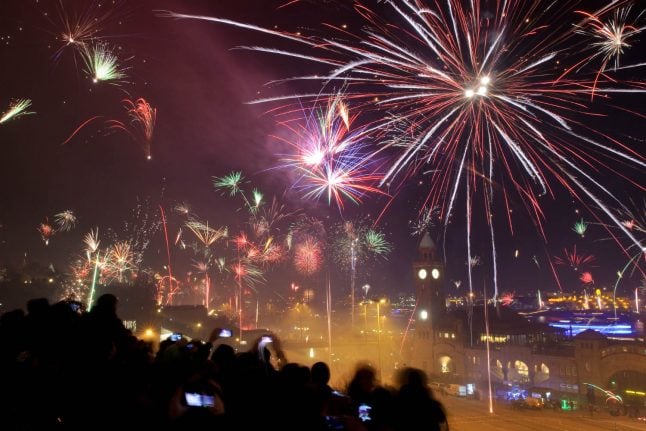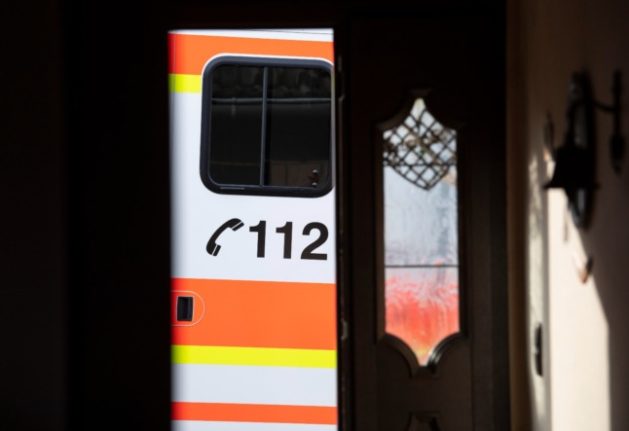The risk of injuries has increased in recent years due to the improper use of fireworks, as well as a skyrocketing number of people pouring in for the festivities, said Senator of the Interior Andy Grote, of the centre-left SPD.
The situation on Silvester is also difficult for emergency forces due to aggression from the crowd, filled with many who have been heavily drinking.
Therefore, the fireworks around the Binnenalster – the Inner Alster Lake – are prohibited, he said.
This year there will also be more police officers on hand to implement the ban, although Grote did not provide an exact number.
Similar bans already exist in cities such as Hanover and Cologne, and a partial ban is going into effect this year in Berlin.
German law allows the private use of fireworks only for 48 hours surrounding New Year's Eve, although in Berlin firecrackers are only permitted from 6pm on New Year's Eve to 7 am on New Year’s Day.
READ ALSO: Fireworks in Germany: What you need to know about ending the year with a bang
A discussion about New Year's Eve fireworks around Germany will also be on the agenda this Thursday at a press conference in Baruth, Brandenburg.
Last year, 10,000 people came to the area around the Binnenalster in Hamburg, said Ralf Martin Meyer, police president of the Harbour City. Many families with children were also among them.
“Of course, alcohol also plays a role. Missiles are fired in a way that is not safe,” said Meyer.
Last year, five policemen were injured. In addition, a seven-year-old child suffered a facial injury, and a 16-year-old boy sustained a hand injury.
Through a large-scale information campaign, the police are aiming to inform the public about the ban.
Posters, flyers in various languages and information on public transport is being made available around the city.
“The ban is nothing special, it exists in many cities,” Grote said, pointing out that it was decided in accordance with the country’s Hazard Prevention Act.
The Jungfernstieg has developed into a focal point in recent years, he said as similar problems don’t exist around the St. Pauli Piers, another popular celebration point.
Berlin ban
Also responding to dangerous displays of fireworks and “street battles”, Berlin authorities decided in January to impose a partial fireworks ban starting this Silvester.
People in the German capital will no longer be able to set off fireworks in Schöneberg, around the Pallasstraße area, and at Hermannplatz in Neukölln.
READ ALSO: Berlin to impose New Year's Eve fireworks ban in two zones
A ban is already in place around the area of the street called Straße des 17. Juni and Potsdamer Platz in Mitte, meaning there will be three prohibition zones in Berlin in total.
Several injuries, as well as 49 attacks on firefighters and 40 on police officers were recorded during the last New Year's Eve.
Vocabulary
Fireworks – (das) Feuerwerk
New Year's Eve – (das) Silvester
crowd – (die) Menschenmenge
A way/method/kind – (die) Art und Weise
A focal point – (der) Kristallisationspunkt
We're aiming to help our readers improve their German by translating vocabulary from some of our news stories. Did you find this article useful? Let us know.



 Please whitelist us to continue reading.
Please whitelist us to continue reading.
Member comments